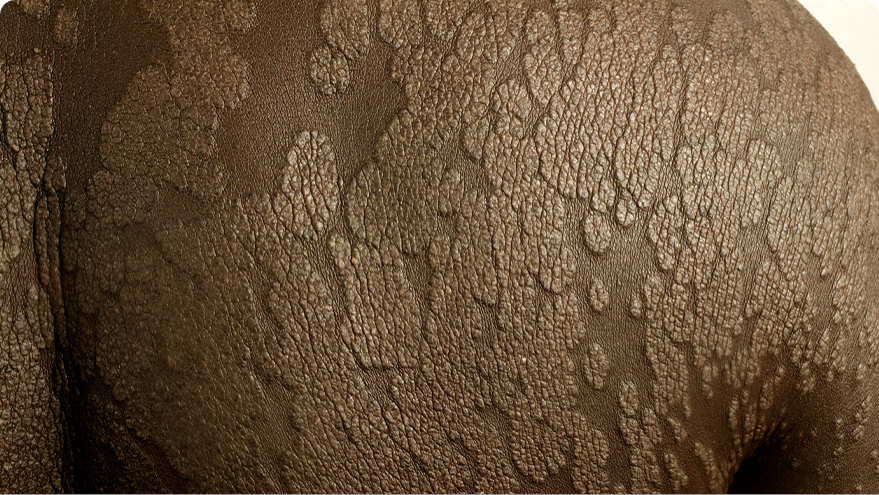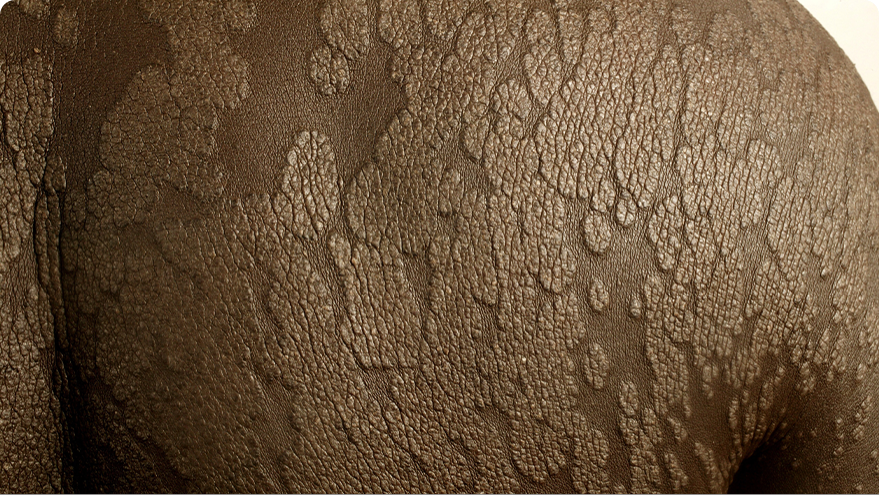PSORIASIS OR ECZEMA?
- The two conditions affect a total of about 40 million Americans.
- Psoriasis and eczema may share similar symptoms, but they’re very different conditions.
- Consider a dermatologist for a proper diagnosis.
What’s the Difference Between Psoriasis and Eczema?
Psoriasis



- Psoriasis often shows up on the outside of elbows and knees, as well as on the back and scalp.
- More than 8 million Americans have psoriasis.
- Psoriasis tends to cause mild itching in children.
Eczema



- Eczema often appears in the crooks of elbows and knees.
- More than 30 million people in the US have some form of eczema.
- The itching can be much worse for children with eczema than for children with psoriasis.
Is It Psoriasis, Eczema, or Something Else?

One of the many things that make psoriasis so frustrating is that it can be hard to diagnose because it can look like other skin conditions. Scales on the skin can be caused by lichen planus, seborrhea, or (most commonly) eczema.
Psoriasis and eczema are very common and affect about 40 million Americans. They may share similar symptoms, like red, itchy, dry, cracked skin, but that’s where the similarities end. Psoriasis and eczema are very different diseases with different causes and treatments. It’s unusual for one person to have both conditions.





Psoriasis is a chronic autoimmune disease which may cause an imbalance in your immune system by creating too many inflammatory proteins. This increase in inflammation is what causes your body to produce extra skin cells that show up as red, scaly patches on your skin or scalp.
Eczema is also associated with inflammation in the body. It's a common skin condition that can be triggered by dry skin, allergies, or sensitivities to things like fabrics or certain chemicals in household and personal products.
Family Matters
Neither psoriasis nor eczema is contagious, but both conditions tend to run in families. So, if a parent or close relative had one of these disorders, you could have one as well.

Only Your Doctor Can Give You a Diagnosis
Since psoriasis and eczema can be confused with each other, your dermatologist is your best source for a proper diagnosis.








